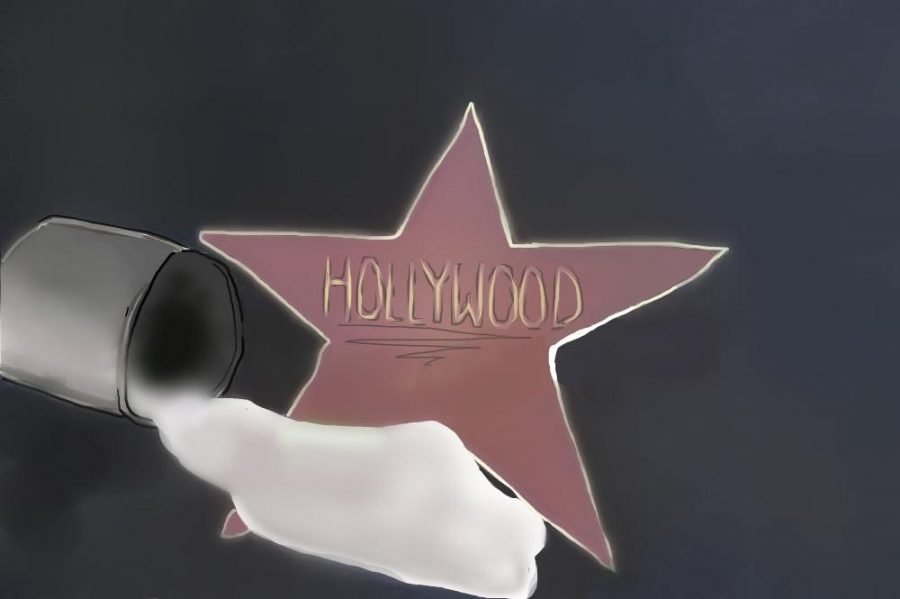The media says that the various colors of actors are being washed away by a white “Hollywood aristocracy.” To some extent that is true, but the actors who are trying to paint stories on the big screen are being relentlessly hunted by those who claim they are anti-whitewashing.
Whitewashing itself implies that a role that truly deserves to be ethnically portrayed is being wrongly cast by a white actor, yet this once valid argument has now become a delusional attack on not only the actors, but the setting, marketing and story itself.
Films should be able to tell the story they feel deserves to be shared with the world, to craft their vision of a narrative, no matter what it is, without being hindered by the skin color of their actors, because as I understood it, actors are selected for their ability to bring the character to life, not based on the color of their skin.
Recently, Matt Damon has been placed in the crosshairs of the white washing machine with his upcoming film the Great Wall. The uproar of upset viewers against his casting is understandable from the perspective that this is a film set in China that deals with Chinese history, but who are we to judge the story the filmmakers are trying to convey? Damon is playing an English mercenary caught in the midst of this historical fiction tale; notice how it’s fictional. Perhaps there’s a conspiracy to attract white audiences with a similar skinned lead, but if it’s not talent or story that may be true reason, it could be avoiding issues that comes from casting particular roles.
Marvel’s newest release, Doctor Strange, was criticized for having British actress Tilda Swinton play the Ancient One in this film of Eastern mysticism. Her comic book counterpart was an Asian man, but a very stereotypical one. Had they used a more accurate depiction, then the attacks would merely shift to ones of racist portrayals and Hollywood stereotypes. Swinton acted phenomenally in the film and truly brought the wisdom of the character to life, and if that’s the alternative to an offensive depiction, then talent wins here. Doctor Strange also features a diverse cast featuring an African American and an Asian actor, meaning the entire ensemble wasn’t whited out. But what’s diversity in a film anyway?
Another example of Marvel deviating from source material in terms of skin color is Nick Fury from the Avengers films who, in the comics that the movies are based from, is a white man. This case of “black washing” could be accredited to the need for diversity, but was Samuel L. Jackson cast instead for the sake of diversity, or was his manifestation of the character the superior choice? The Ultimate line of Marvel comics did feature a Jackson-esque version of Fury, and the crafters of the film stories must have made that decision in scope of character, not mere skin color. Otherwise, a white man would have been certainly cast so that his role is not “robbed” from him.
You see, whenever diversity is used in Hollywood, it becomes difficult to discern whether it’s due to an idealistic vision of co-existence like that of Star Trek, an accidental assembly of amazing actors, or a mere tool to fight whitewashing claims.
The two recent Star Wars films sport varied casts of many ethnicities, but I find myself wondering if this wasn’t constructed by Disney and Lucasfilm as a diversity shield. I like to believe that they are picked with good intentions in spreading variety, but I’m afraid the whitewashing argument has backed Hollywood into a corner, who are flinging multiethnic casts without a thought.
The more recent entry, Rouge One, has a reverse whitewashing problem, where people are claiming that while the heroes are diverse, the villains are all white. I don’t think this was done as some comment on racism, but to emulate the original Star Wars films. The Rebellion was diverse in comparison to the fascist Empire, and those films featured predominantly white actors anyway; aliens had to be used to spell diversity, so why not different humans now?
The point is, Rouge One was cast to reflect the story that was established, and like many other films, the flowering of the narrative to society is most important. I believe that there are some genuine cases of white washing, but the entire debate has spiraled into madness concerning skin colors in Hollywood, as if there weren’t humans beneath.
I like to say that if it isn’t political, we shouldn’t worry about being politically correct, and while this isn’t the case for some movies, most are for our entertainment and to construct a worthy story. I don’t want Hollywood to think of ethnicities as another check on a spreadsheet or to worry solely about getting that black actor in not because he deserves the role, but simply because his skin color will ward off claims of whitewashing bigotry. I want actors and the stories they tell to be treated with respect. If our whitewashing arguments have done anything, it has succeeded in washing all of the art in filmmaking and the rich colors of acting from the eyes of the movie industry.
Industry. That’s what films are today: each ethnicity gets strategically placed like a pawn on a chessboard with hardly any concern for genuine diversity, but insuring financial victory against the fanatical masses. It isn’t about spreading the colors of the human race, it’s about the color green and keeping our money in their pockets. We simply can’t win with the whitewashing argument.








